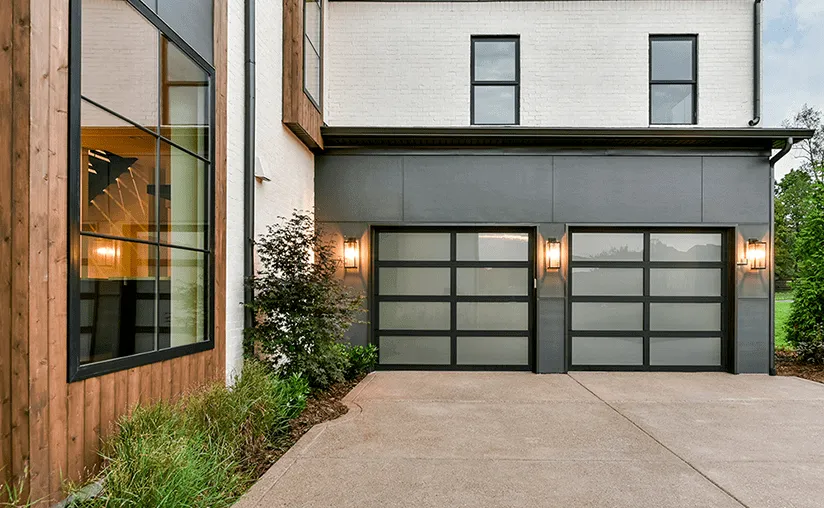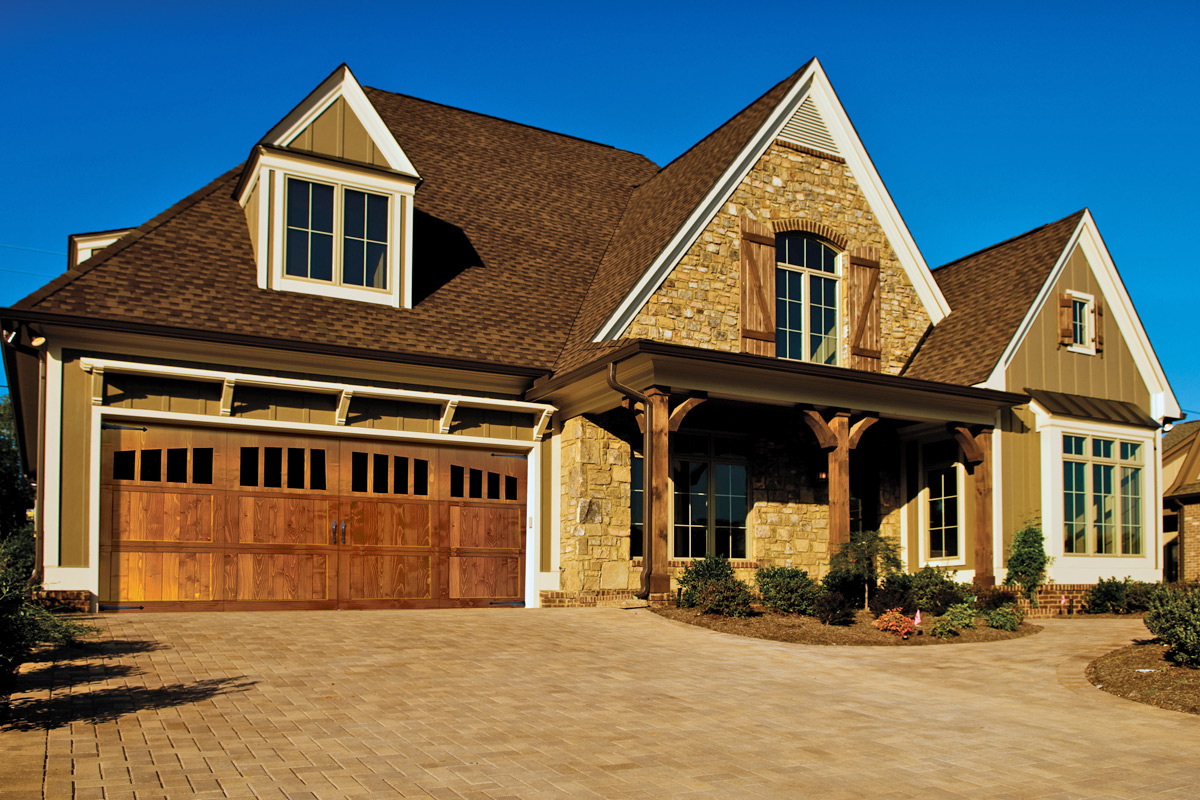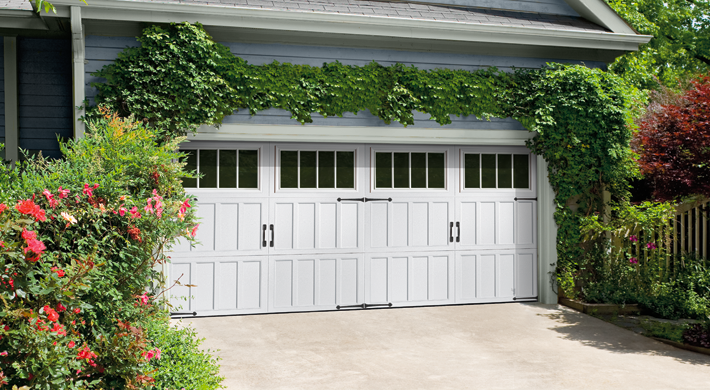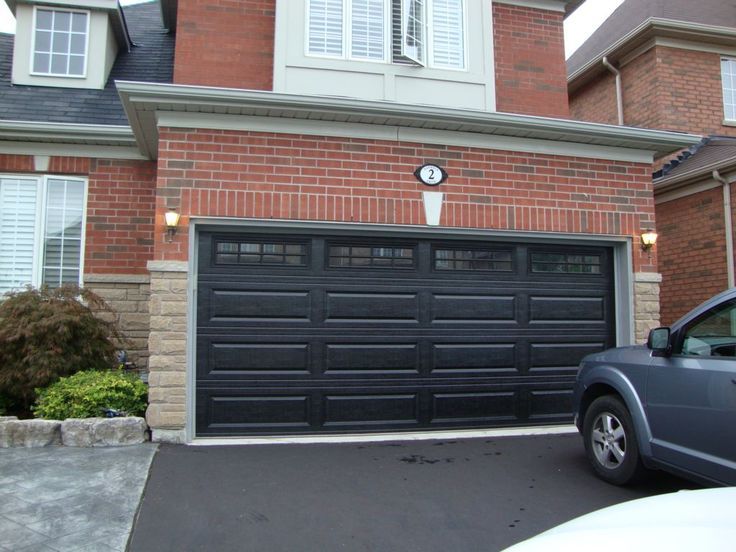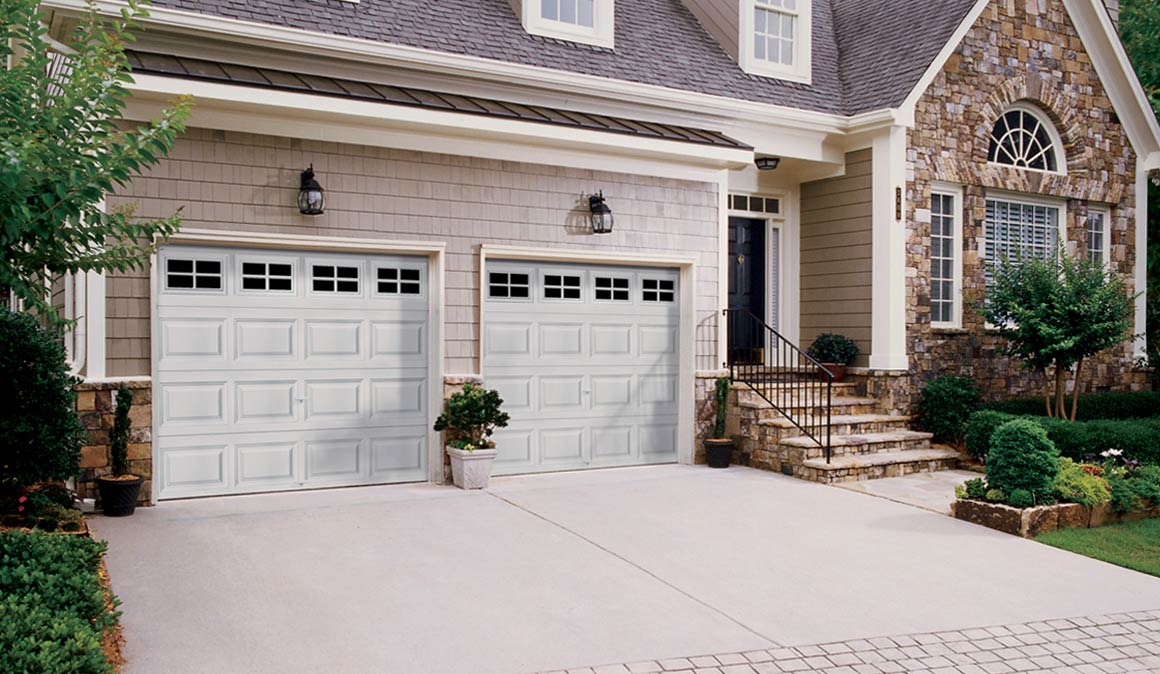When it comes to modern conveniences, few things make life easier than an automated garage door. As a homeowner, you might not give much thought to the functionality of your garage door until something goes awry. One of the most common issues people face with their garage doors is a broken spring. So, what happens when a garage door spring breaks? This comprehensive guide will provide you with valuable insights into the question.
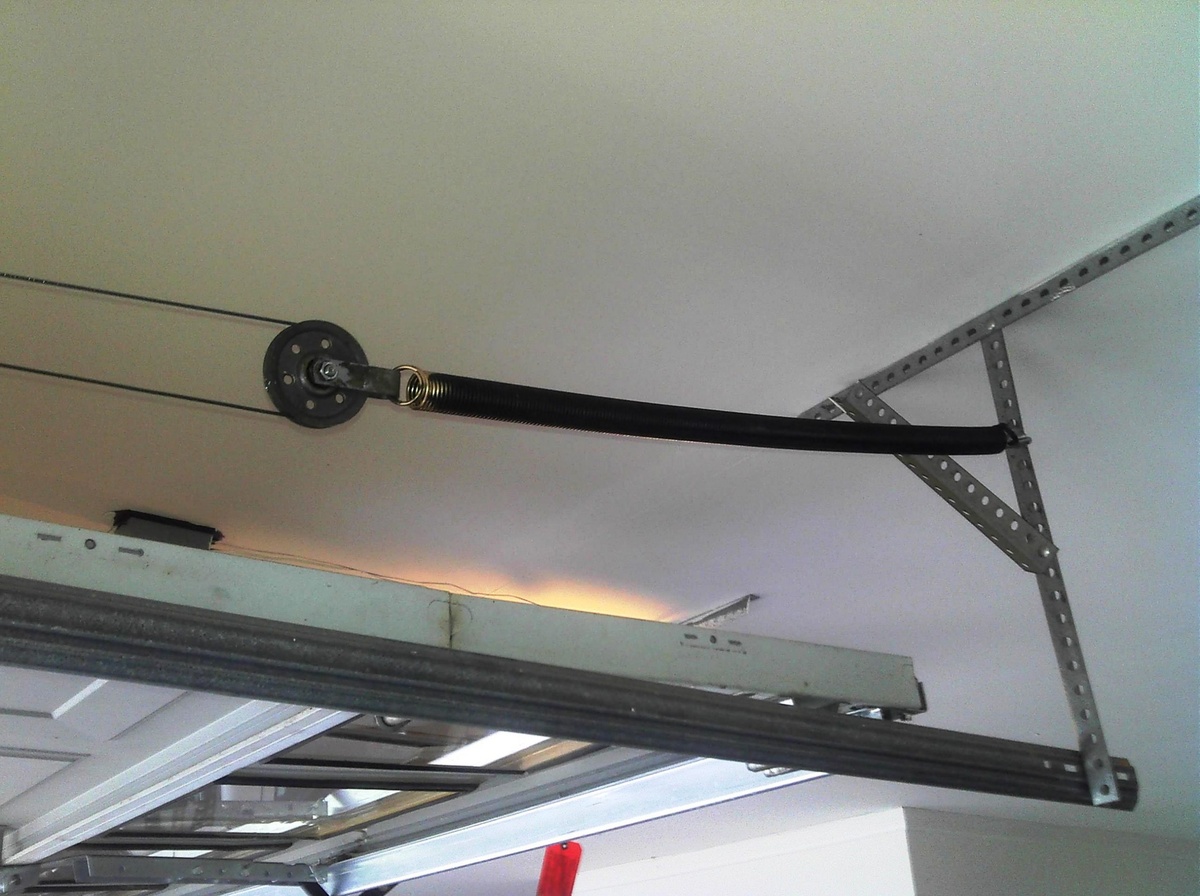
Understanding Garage Door Springs
Before diving into what happens when garage door springs break, it’s essential to understand what they are and their function in the garage door mechanism.
Types of Garage Door Springs
There are primarily two types of garage door springs:
- Torsion Springs: These are positioned horizontally above the garage door when closed. They are designed to support the garage door’s weight and make lifting easier.
- Extension Springs: Located on either side of the garage door, these springs expand and contract as the door opens and closes.
Function of Garage Door Springs
Both torsion and extension springs counterbalance the weight of your garage door, making it possible to lift and lower with minimal effort. They bear significant tension and stress, which can lead to eventual wear and tear.
Signs That Your Garage Door Spring Is About to Break
Recognizing the early warning signs of a failing garage door spring can save you from considerable inconvenience and potential hazards.
Visible Wear and Tear
One of the most apparent signs of a failing garage door spring is visible wear and tear. Look for signs of rust, fraying, or gaps in the spring.
Unusual Noises
If you hear creaking or snapping noises when operating your garage door, it could indicate that the springs are under excessive stress.
Uneven Door Movement
If one side of the garage door appears to move faster than the other, it could be a sign that the spring tension is uneven.
Immediate Effects of a Broken Garage Door Spring
A broken garage door spring can result in various immediate effects that homeowners should be prepared for.
Sudden Loud Noise
One of the first things homeowners notice when a garage door spring breaks is a loud snapping or banging noise. This noise is the spring releasing its tension suddenly.
Difficulty Opening the Garage Door
Without the counterbalance provided by the springs, lifting a garage door manually can become extremely challenging. In some cases, the door may not open at all.
Door Slamming Shut
In the event that a spring breaks while the door is in motion, it could slam shut suddenly. This poses a significant safety hazard, especially if someone is in the doorway at that moment.
Long-Term Implications of Ignoring a Broken Garage Door Spring
Ignoring a broken garage door spring isn’t just an inconvenience; it can lead to long-term consequences.
Premature Wear on Other Components
A broken spring puts additional stress on other parts of the garage door system, such as cables, rollers, and the motor. This can lead to premature wear and further damage.
Increased Safety Risks
A malfunctioning garage door is a safety hazard. It can fall suddenly, potentially causing injury or damage to vehicles and other property.
Higher Repair Costs
Delaying repairs can result in more extensive damage, leading to higher repair costs. It’s more cost-effective to address the issue as soon as possible.
Steps to Take When Your Garage Door Spring Breaks
Knowing what steps to take when your garage door spring breaks can save you time, money, and stress.
Do Not Force the Door Open
Attempting to force the door open can cause further damage and increase the risk of injury. Avoid using the door until it’s repaired.
Disconnect the Garage Door Opener
To prevent accidental operation, disconnect your garage door opener. This will also allow you to open the door manually if necessary.
Consult a Professional
Garage door spring repair is not a DIY project. Consult a professional to ensure that the repair is done safely and correctly. For more information on why professional maintenance is crucial, check out this article on regular garage door maintenance.
Preventative Measures to Extend the Lifespan of Your Garage Door Springs
Taking preventative measures can extend the lifespan of your garage door springs and reduce the likelihood of unexpected failures.
Regular Maintenance
Maintain your garage door system regularly. Lubricate the springs, inspect for wear and tear, and make adjustments as needed.
Schedule Professional Inspections
Regular inspections by professionals can catch potential issues before they become major problems. For tips on what to look for, see this guide on garage door replacement signs.
Balance the Door
Ensure that the garage door is balanced properly. An unbalanced door can put extra strain on the springs, leading to accelerated wear.
Common Misconceptions About Garage Door Springs
There are several misconceptions about garage door springs that homeowners should be aware of.
All Springs Are the Same
Not all garage door springs are the same. Torsion springs and extension springs vary in design, functionality, and durability.
DIY Repairs Are Safe
DIY repairs might seem like a cost-effective solution, but they can be dangerous. The high tension in garage door springs can lead to severe injuries if handled improperly.
Springs Last Forever
Garage door springs have a limited lifespan. Regular maintenance and timely replacements are essential for the safe operation of your garage door.
Cost Implications of Replacing Garage Door Springs
Understanding the cost implications can help homeowners budget for necessary repairs.
Factors Affecting Replacement Costs
Several factors can influence the cost of replacing garage door springs:
- Type of spring (torsion or extension)
- Labor costs
- Geographic location
- Additional parts and services
Average Cost Estimates
While costs can vary, homeowners can expect to pay between $150 and $300 for professional spring replacement. This estimate includes both parts and labor.
The Importance of Choosing a Qualified Technician
Choosing a qualified technician for garage door spring replacement is crucial for ensuring safety and quality work.
Certified Technicians
Look for technicians with certifications and extensive experience in garage door repairs. Qualified professionals are more likely to provide reliable and safe service.
Customer Reviews
Check customer reviews and testimonials to gauge the quality of service provided by different technicians.
Warranty and Guarantees
Choose a technician who offers warranties and guarantees on their work. This provides peace of mind and ensures that any issues will be addressed promptly.
Maintaining Safety with Garage Door Springs
Safety should always be a priority when dealing with garage door springs.
Safety Cables
Install safety cables on extension springs to contain any broken springs. This can prevent potential injuries and damage.
Regular Safety Checks
Perform regular safety checks to ensure that all components of the garage door system are functioning correctly.
Professional Assistance
When in doubt, seek professional assistance. Many homeowners underestimate the dangers associated with garage door springs.
Conclusion
A broken garage door spring is more than just an inconvenience it poses potential safety risks and can lead to further damage if not addressed promptly. Understanding what happens when a garage door spring breaks and taking proactive measures can help homeowners maintain a sa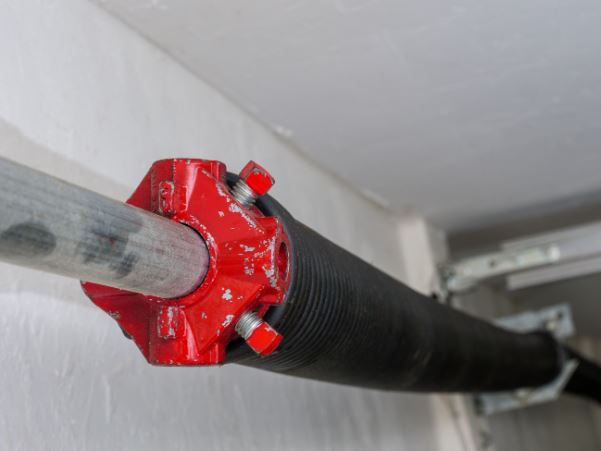 fe and functional garage door system. For more insights on maintaining your garage door, consider this helpful guide on common garage door problems.
fe and functional garage door system. For more insights on maintaining your garage door, consider this helpful guide on common garage door problems.
FAQ
Can I still use my garage door if the spring is broken?
While it is technically possible to use your garage door with a broken spring, it is not recommended. Doing so can lead to further damage and pose safety risks. Consult a professional for repairs.
How long do garage door springs typically last?
The lifespan of garage door springs depends on usage and maintenance. On average, torsion springs last between 10,000 to 15,000 cycles, whereas extension springs last around 5,000 to 10,000 cycles.
Is it safe to repair a broken garage door spring myself?
Repairing a broken garage door spring is not a DIY project. The high tension in the springs can cause severe injuries if mishandled. Always consult a professional for such repairs.





